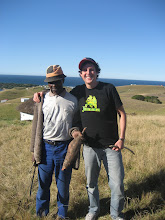Since, it seems that both democratic and republican congressmen,and even presidents, often lack the intellectual competency to make rational decisions and statements in public office, I have come up with the following idea:
All persons interested in running for public office must pass a series of litmus tests before they are eligible. We do this with lawyers, doctors, nurses, dentists..... we should do it with our politicians. An independent body of experts from a number of fields should develop tests on the following topics:
Constitutional Law
Health care
U.S. History
World History
Macroeconomics
Microeconomics
Environmental issues
(and probably more)
We have a representative democracy instead of direct democracy for a reason: The average individual does not have the depth of knowledge required to make fair and rational decisions for the good of our country (Case in point: California). Therefore, we most elect representatives that understand the concerns facing their constituencies, but also have the intellectual ability to develop rational and evidence-based solutions to complicated problems; many of our elected officials lack this ability and we must rectify that.
